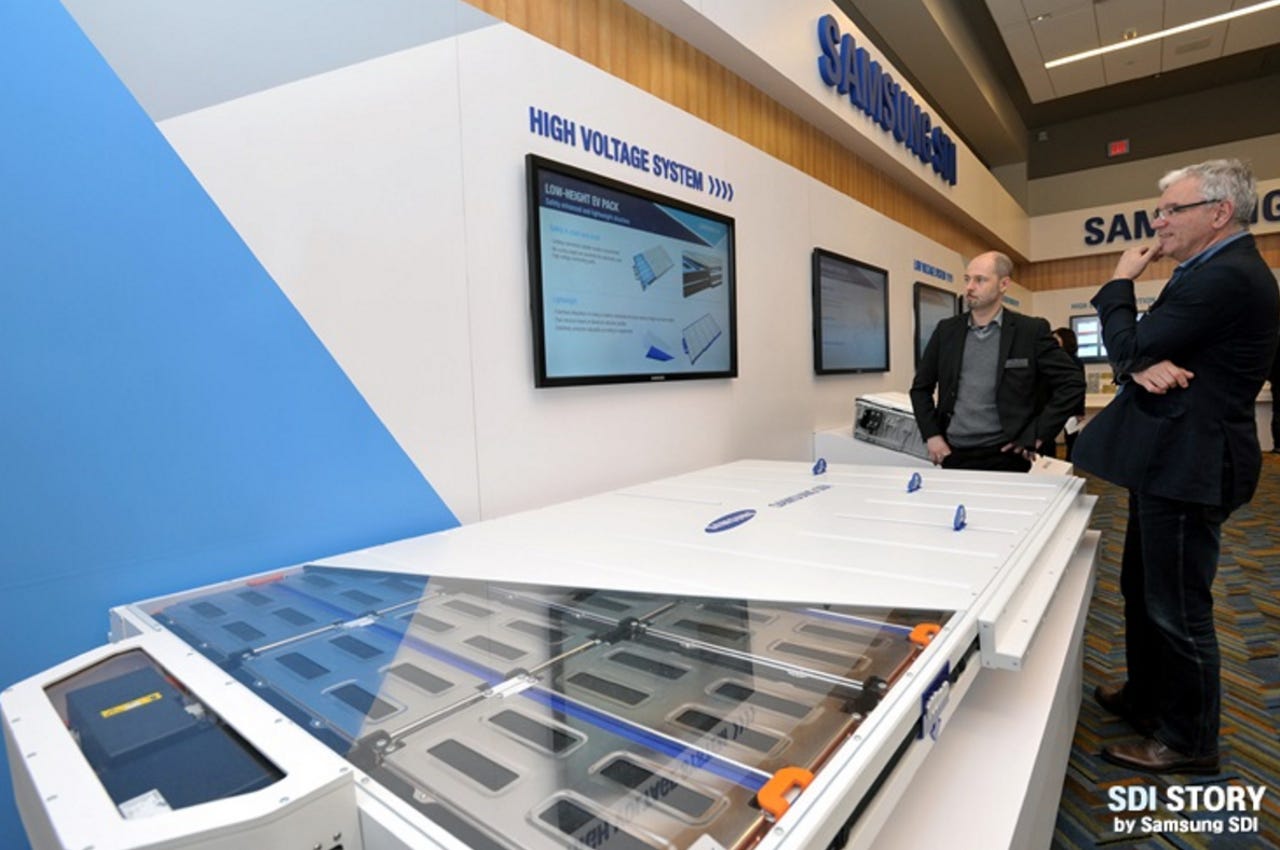Samsung reveals long-lasting electric vehicle battery prototype


Samsung has unveiled an electric vehicle (EV) battery prototype designed to improve the driving range of next-generation cars as well as lessening the environmental impact of production.
The company's battery making arm, Samsung SDI, revealed the prototype design at the Detroit Auto Show this week.
Samsung touts the high-density prototype EV battery as a means to increase the driving range of cars to 373 miles (600km) on a single charge, an improvement on many energy cells available today which can only go up to 500km.
The electronics giant expects to begin commercial production of the batteries by 2020.
Today's EV drivers face a common problem: range anxiety. While electric vehicle charging stations are beginning to make their way onto the map, they are nowhere near as frequent as traditional pump stations. Without this supportive infrastructure and the low driving range many EVs currently have, there are drivers out there who do not want to invest until the situation improves.
It is up to companies with research budgets to consider EVs as worthwhile -- especially as the automotive industry is proving to be another revenue stream for technology companies facing sliding mobile device and PC sales. If they are to remain competitive in the future, they must diversify and explore new technologies now.
Featured
In addition, as part of the announcement, the South Korean firm also unveiled "Low Height Packs" for electric vehicles, which reduce the physical size of batteries by approximately 20 to 30 percent, as well as offer higher energy density.
"The reduction in height and its higher energy density will allow car designers to install packs more easily and reduce production costs," Samsung says.
The tech giant also used the Detroit Auto Show to showcase a new low voltage system (LVS) for Evs which improves eco-friendliness and fuel efficiency. Samsung claims the new LVS system can not only be installed in both EVs and traditional fossil fuel-based cars but will improve fuel savings through the replacement of lead-acid batteries with lithium-ion alternatives.
President Nam Seong Cho of Samsung SDI commented:
"We aim to lead the era of popularizing EVs by introducing a variety of solutions and products desired by customers and the market at this auto show.
Particularly, we will accelerate to make [a] foray into the global automobile market including North America by providing the new high energy density battery cell based on the world's top technology leadership as well as the low height packs and LVS solutions."
If electric vehicle ownership is ever going to truly take off, these kinds of products and EV research, in general, is a must. The battery component of electric vehicles is one of the most expensive parts and takes up a fair amount of the high starting price of purchasing an EV. If batteries can be made more efficient, last longer and remove range anxiety -- as well as reduced in price -- this is a step in the right direction for increasing the adoption rates of EVs.
In 2014, Tesla revealed that Nevada would be the home of the Gigafactory, a massive production site dedicated to research and the production of electric vehicle batteries.
CES 2016: Meet this year's weird, wonderful and worst tech
Read on: Top picks